Premium Only Content

The Emotional Cannibal
I Want You to Live, But Only Inside of Me | Women's Class Pirkei Avos - Chapter 3
This class was presented on Tuesday, Parshas Acharei-Kedoshim, 4 Iyar, 5783, April 25, 2023, at Bais Medrash Ohr Chaim in Monsey, NY.
We learn in the third chapter of Pirkei Avos: Rabbi Chaninah, deputy to the kohanim, would say: Pray for the welfare of the government, for were it not for the fear it inspires, every man would swallow his neighbor alive. Rabbi Chaninah son of Tradyon would say: If two sit together and there are no words of Torah [spoken] between them, then this is a session of scorners ... Two who sit and exchange words of Torah, the Divine Presence rests amongst them...
The basic meaning of (the first) Rabbi Chaninah's words is that for a society to be civilized its members must submit to the rule of government and law. The need for "fear of authority" may seem an insult to our sophistication and intelligence, but the fact remains that without it there would be nothing to check the worst in man, and the anarchic rule of the jungle would prevail.
The question, though, is how this passage made it into Pirkei Avos, the Ethics of the Fathers, which is a book of character-building, of going “beyond the letter of the law.” In these chapters you will not find a prohibition of murder, theft, deception, or adultery. For that we have the Torah and the other tractates of Mishnah. Yet here we have an astounding exception. Suddenly the Mishnah tells us that we must do what we can to avoid people eating each other alive!
A second enigma is this. The Mishnah rarely if ever employs poetic language. It is not a book of poetry, but of law. Why does the Mishnah use this phrase, “every man would swallow his neighbor alive,” not the ordinary and straightforward term in Torah and Tanach, “every man would kill his neighbor.”
There is a third enigma. Rabbi Chanina was not only addressing the non-Jewish world, but also the Jewish world. In the words of Maimonides in his commentary on this Mishnah: “If not for the fear of government we would swallow each other alive.” But this seems unfair and harsh. Jews, who are born and bred with the values and mitzvos of the Torah, have rarely been involved in murder. Till today, no Jewish school in the world where Torah is taught has a metal detector. Is it really true that if we had not fear of government, we would murder each other?
Finally, what is the juxtaposition between this clause of the Mishnah and the following one: “Rabbi Chaninah son of Tradyon would say: ... Two who sit and exchange words of Torah, the Divine Presence rests amongst them.” They seems disjointed. Why were they put together in one Mishnah?
It was at a farbrengen Shabbos Parshas Shlach 1975, when the Lubavitcher Rebbe offered a marvelous and extremely relevant explanation into this Mishnah which answers all the above questions—and teaches us how to live.
We also tell the story of a horse by the water, two groceries in Crown Heights, the arrogant scholar, the dignity of a child, and Rabbi Lau’s Bar mitzvah.
-
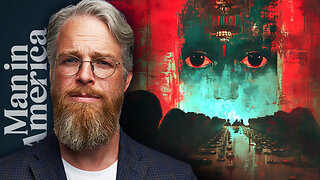 1:02:40
1:02:40
Man in America
8 hours agoThe Elites Are Losing Their War on Our Children w/ Robert Bortins
18.4K6 -
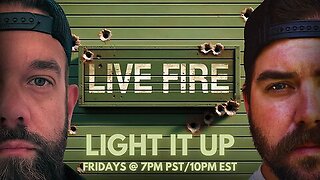 LIVE
LIVE
I_Came_With_Fire_Podcast
10 hours agoGovt' Shutdowns, VA Scandals, MORE Drones, Syrian Strikes and staged rescues , and The DHS!
2,978 watching -
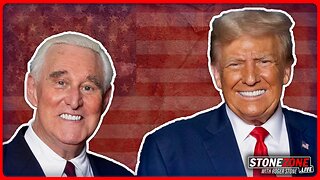 56:55
56:55
The StoneZONE with Roger Stone
6 hours agoTrump Should Sue Billionaire Governor JB Pritzker for Calling Him a Rapist | The StoneZONE
44.9K8 -
 59:21
59:21
Adam Does Movies
5 hours ago $1.24 earnedMore Reboots + A Good Netflix Movie + Disney Live-Action Rant - LIVE
29.6K1 -
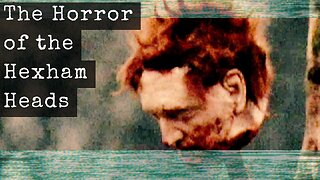 36:28
36:28
TheTapeLibrary
15 hours ago $7.86 earnedThe Disturbing True Horror of the Hexham Heads
57.8K5 -

JdaDelete
1 day ago $1.22 earnedHalo MCC with the Rumble Spartans 💥
37.3K7 -
 3:52:22
3:52:22
Edge of Wonder
9 hours agoChristmas Mandela Effects, UFO Drone Updates & Holiday Government Shake-Ups
33.8K8 -
 1:37:36
1:37:36
Mally_Mouse
8 hours agoLet's Play!! -- Friends Friday!
39.3K1 -
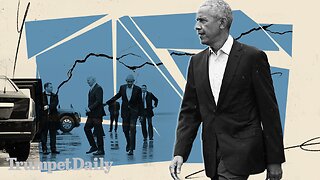 57:45
57:45
LFA TV
1 day agoObama’s Fake World Comes Crashing Down | Trumpet Daily 12.20.24 7PM EST
35K15 -
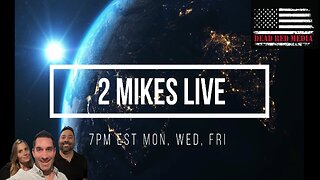 1:27:17
1:27:17
2 MIKES LIVE
7 hours ago2 MIKES LIVE #158 Government Shutdown Looms and Games!
30.9K10